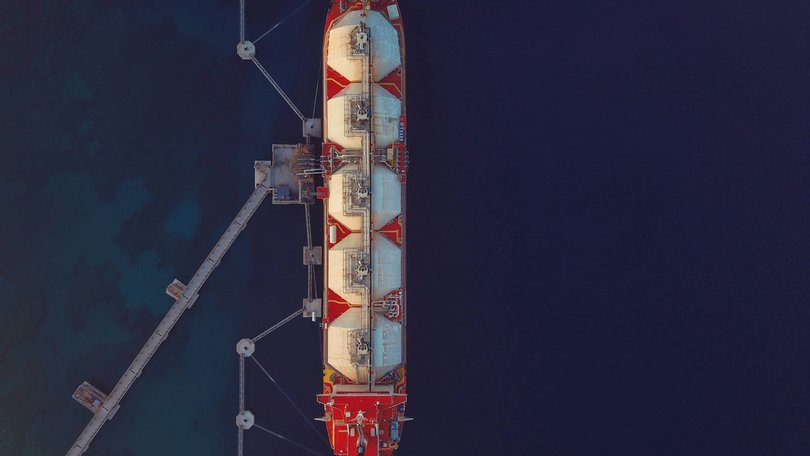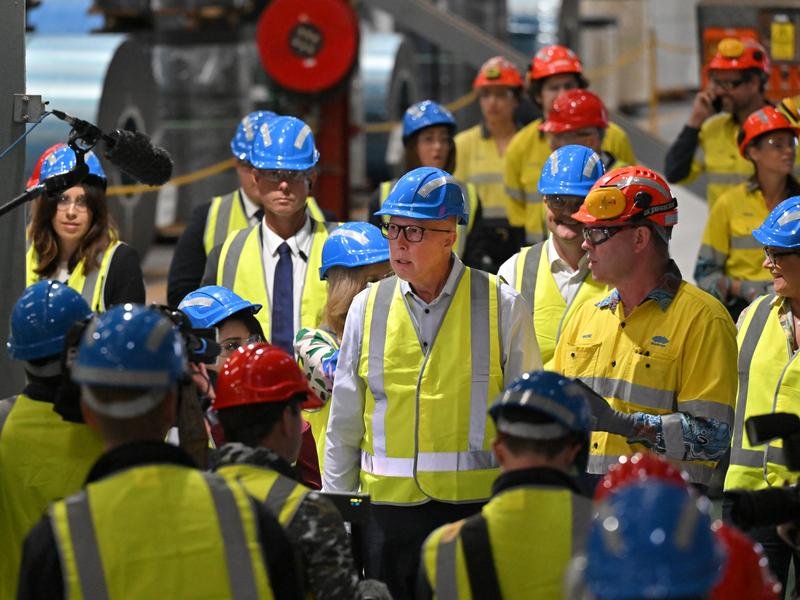ELLEN RANSLEY: Labor’s gas reservation policy puts industry on notice
ELLEN RANSLEY: Labor must navigate a precarious period where the transition to renewables backed by gas ramps up, at the same time the Australian Energy Market Operator sounds alarm bells of major shortfalls.

For a moment of the election campaign, Peter Dutton was on a unity ticket with the Greens, independents, and One Nation. His pitch to establish an east coast gas reservation policy was, at its core, popular with progressives and ultra-conservatives alike.
With a thumping victory under their belt, Labor must now navigate a precarious period where the transition to renewables — backed by gas — ramps up, at the same time the Australian Energy Market Operator sounds alarm bells of major gas shortfalls from the end of the decade.
Experts and progressive gas reservation proponents say that warning is based on a lie. There would be no shortfalls and gas wouldn’t get more expensive if Governments crack down on the industry and demand they keep more supply for domestic use.
Sign up to The Nightly's newsletters.
Get the first look at the digital newspaper, curated daily stories and breaking headlines delivered to your inbox.
By continuing you agree to our Terms and Privacy Policy.Labor has put the industry on notice, and reservations beyond those already in place in Queensland and Western Australia are on the table.
Resources Minister Madeleine King has confirmed the Government will launch a wide-ranging review of Australia’s energy framework. Set to start by July 1, the review will investigate how market bodies can ensure greater gas access for Australians
Pointing to an “energy policy mess” inherited from the previous government in 2022, Ms King has vowed Labor is working to improve gas supplies and relieve household costs in “an orderly way”.
“The government will progress the planned review of gas market frameworks and the role of market bodies to ensure more gas is made available for Australians,” she said.
In the same week where the Victorian Government green-lit a gas import terminal, and the Federal Government signed off on a 45-year extension to WA’s North West Shelf project where the bulk of supply would be exported, Ms King has cautioned the sector that its social license depended on pumping more affordable gas into the domestic market.

Industry Minister Tim Ayres on Friday said the Government would take its time to get its policy right.
“We are focused on making sure the mechanisms that are there, and the packages that are there, are delivering the purpose they need to deliver,” he said.
“What we’re not going to do is do what the Coalition did during the election campaign, which was policy on the run.
“The Coalition ran around pretending to be the best friend the gas industry had … then at the last second cobbled together a pretend reservation strategy that would have delivered a sixth of what the government had already delivered.”
For years, experts have been calling on the Government to stand up to the gas industry and demand not only a greater slice of their supply for domestic use, but also fairer prices.
Around 80 per cent of Australia’s gas, on average, is exported. Meanwhile, wholesale gas prices have doubled from where they were four years ago.
In giving Viva Energy the green light to open a gas import terminal in Geelong, the Victorian Government says that would help ward off the AEMO’s warnings of supply shortfalls from 2029.
Rod Campbell, research director at the Australia Institute, said Victoria produces more gas than it needs, and exporting is the issue.
“Victoria still produces far more gas than it uses. Again, the problem is exports. Exports are causing the problem in Victoria. They’re causing problems everywhere,” he told The Nightly.
“The key point is, Australia is already producing loads of gas for our own use and exports. We don’t need new gas projects.
“So, I’m sure the gas industry will want (a gas reservation) to be focused on enabling new gas projects, whereas anyone who’s interested in addressing climate change and the Australian national interest should be wanting to make sure that new gas projects are ruled out and sufficient gas from existing production is made available to Australians at reasonable prices.
“In that context, it’s not a huge surprise that the government’s looking at some kind of restrictions on gas exports, and I think this could be done in good ways and bad ways.”
The best outcome, he said, would be less gas being exported, cheaper gas for Australians, and more revenue for governments. Any new gas projects coming on and being subsidised under a reservation, as was Mr Dutton’s proposal in the campaign, would be a bad outcome.
Tim Buckley, director of Clean Energy Finance, said it was “absolutely ridiculous that eastern Australia has some of the highest domestic gas prices in the world, when we are the third largest exporter of gas in the world”.
“The gas cartel has, over the last decade, taken the domestic gas price in eastern Australia from an average of $3-$4 a unit to $14-$16 a unit. It was 100 per cent obvious years ago that (gas producers) were moving to export price parity for all their domestic gas reserves, and that’s what they’ve done,” he told The Nightly.
He said the Government needed to be prepared to stand up for Australians and demand a fairer price.
“We’re starved of domestic gas, because that’s exactly how the gas cartel maximises their profit, they will always supply the demand, but the price is the problem. So even the argument, if they were to free up some supply, that’ll lower the price (is farcical). It’s up to the government to say, what is a fair price, whether it’s six, eight or 10, anything’s better than 14 to 16,” he said.
“After 10 years of gouging, I think it’s beyond time that the Federal government worked with the State governments of Queensland, New South Wales and Victoria to actually solve the fossil fuel, energy, and cost of living crisis that has been smashing Australia the last couple of years.”
He said any reservation policy could not be an excuse to approve more gas production, exploration and development.
WA and Queensland already have reservation policies, requiring multinational companies keep some of the gas they drill for the domestic market.
In a statement, Ms King acknowledged those schemes in the country’s biggest gas producing states had been successful.
“The government will progress the planned review of gas market frameworks and the role of market bodies to ensure more gas is made available for Australians,” she said.

